
Mission Complete: The International Space Apps Challenge
The International Space Apps is a 36-hour hackathon that takes place in numerous cities all over the world (including the TW Office in Porto Alegre). This year teams were presented with 40 challenges and 25 projects that centered around five themes: Earth Watch, Technology in Space, Human Spaceflight, Robotics and Asteroids. Participants were encouraged to collaboratively build open source solutions to the presented problems.
This year marked the first time Chicago hosted their own Space Apps Challenge. Teaming up with Science Hack Day, developers, scientists, and many more came together at the Adler Planetarium to talk science and data, develop apps, and play with cutting edge technologies.
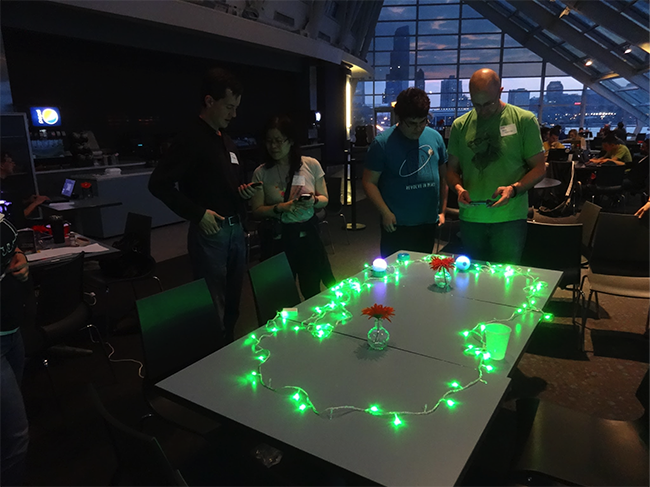
What we did
Thoughtworkers who attended this event contributed to a couple different projects, including the following:
One project was centered around usage of technology to simulate flying so that people can remotely explore an area which may be dangerous or inaccessible. The team began with this idea and three pieces of hardware: a Wii Balance Board, an ARDrone Quadcopter, and an Oculus Rift virtual reality headset.
At the beginning of the day, we broke into smaller groups to focus on individual tasks: reading video from the Quadcopter, delivering instructions to the Quadcopter, and reading output from the Wii Balance Board. By the evening, we were able to stand on the Wii Balance Board and, using some fancy footwork, control the Quadcopter; in addition, the person driving the quadcopter wore the Oculus Rift goggles and saw what the quadcopter was ‘seeing.’
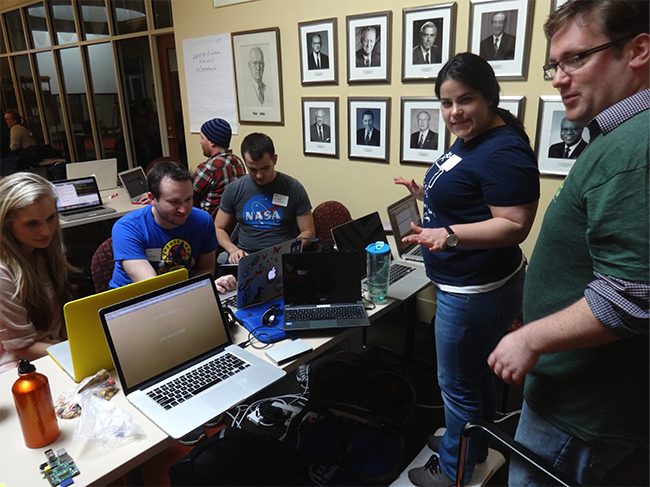
Caption: Simulated flying team, working together
Other TWers spent the night working with a team of developers from another one of Chicago’s software consulting groups on an Android application to connect people with past, current, and future space missions. The application was targeted to address the sponsored Space Mission Roadmap challenge. The showcased product scraped data about upcoming space missions and presented important dates and details for each mission. Continued development of the project will implement push notifications to alert people of imminent space mission activity and to past events from a variety of international space organizations. At the end of the hackathon, this team won Best Use of Data (at the Adler location).
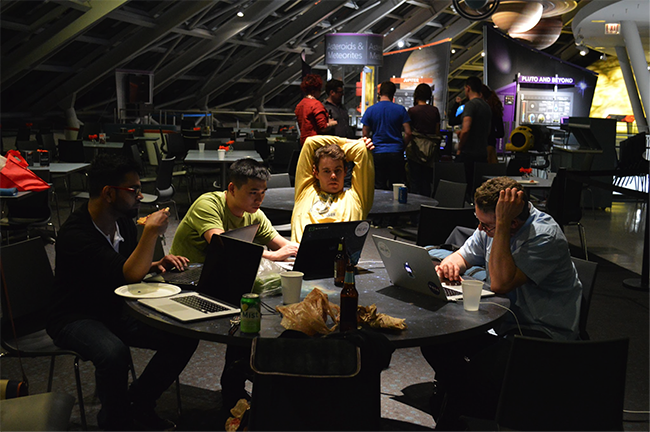
Caption: Working late at Adler Planetarium
Why we should do it again and what to keep in mind for next year
1. There were many challenges geared towards helping local communities. Challenges included creating tools to provide information so communities can prepare for coastal inundation, or enabling communities to prepare for weather and climate patterns, as well as determining the level of pollution in the air based on colors detected in the sky.
2. It's a great opportunity to hack on different hardware. On top of working with the Oculus Rift, drone and Wii-board, there were also micro-controllers and 3D printers available. A lot of us also ended up getting exposure to technologies we hadn’t worked with before. Thoughtworker who attended were introduced to libraries to help control different hardware components and fast ways to spin up mobile applications.
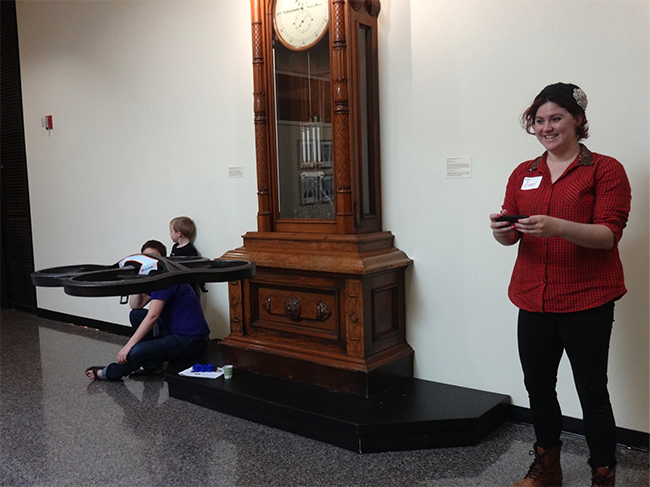
3. Even though challenges are posted weeks before the hackathon takes place, few people came prepared with set plans for what they wanted to build. This left many people searching for projects. Next year, it would be fun to have teams of Thoughtworkers come up with projects strategies in advance. This way Thoughtworkers could encourage others to join their team and start building functionality.
4. Space Apps was a great way to connect with and meet other people in the Chicago tech industry and work with other developers outside of Thoughtworks. Hackathon attendees were mostly local students, developers, scientists, and technology enthusiasts. It was a perfect place to talk about technology and spread the word about Thoughtworks.
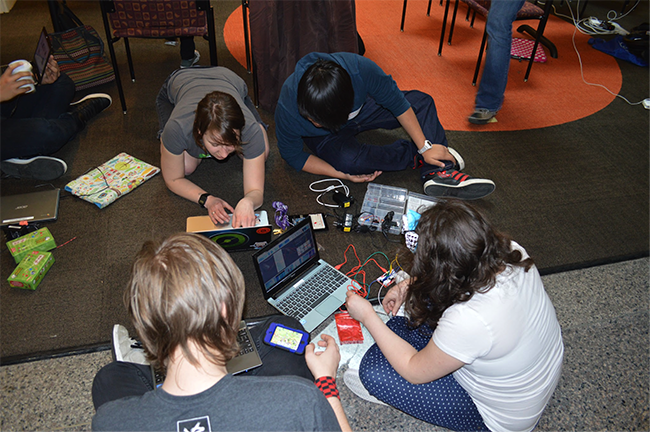
5. There is the potential for global recognition. Three teams at each Space Apps event location were selected for global nomination. A team could be nominated for one of the five categories: Best Use of Data, Best Use of Hardware, Best Mission Concept, Galactic Impact, and Most Inspiring. The global winners will be selected by a panel of NASA judges in May.
Disclaimer: The statements and opinions expressed in this article are those of the author(s) and do not necessarily reflect the positions of Thoughtworks.














